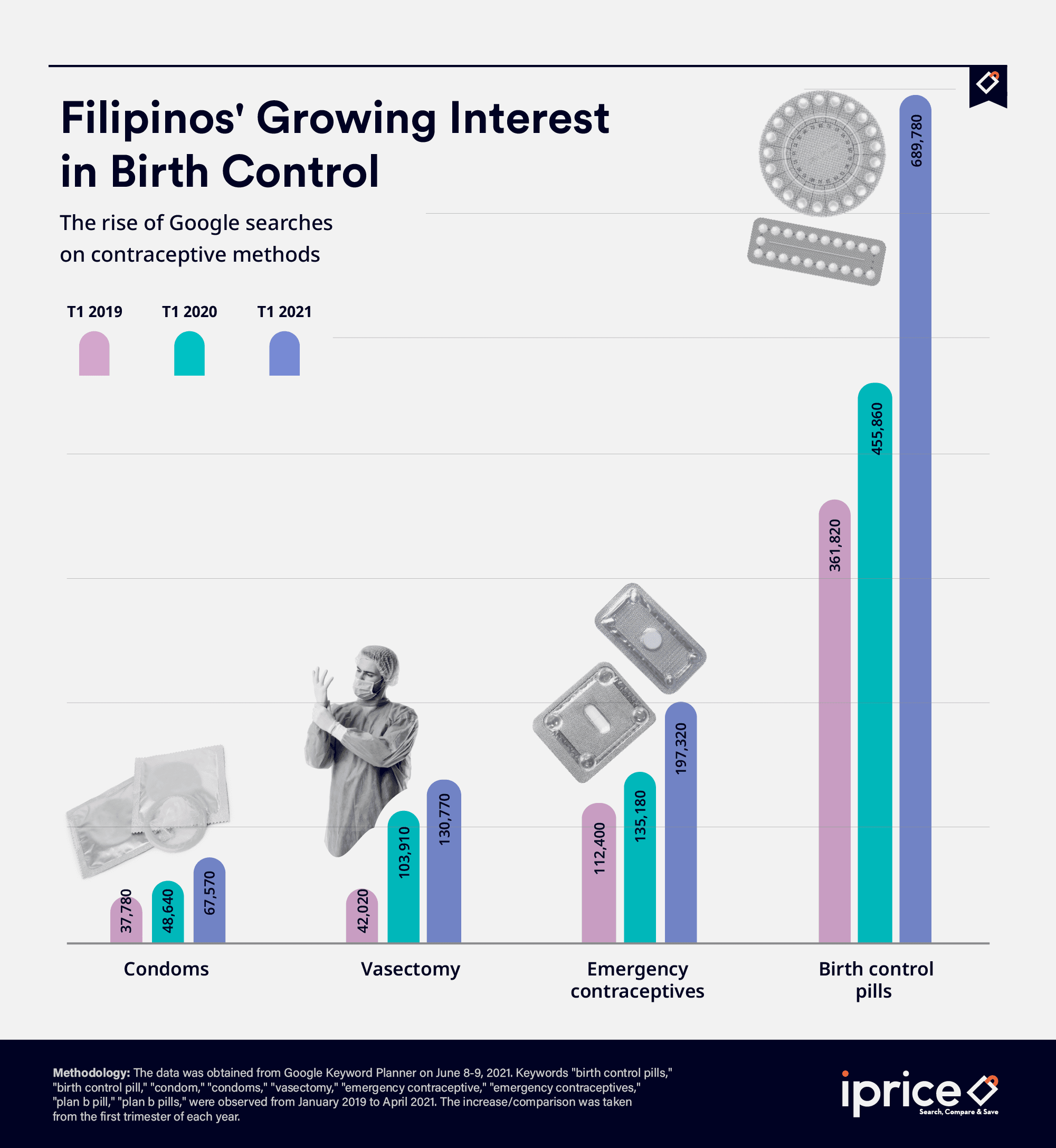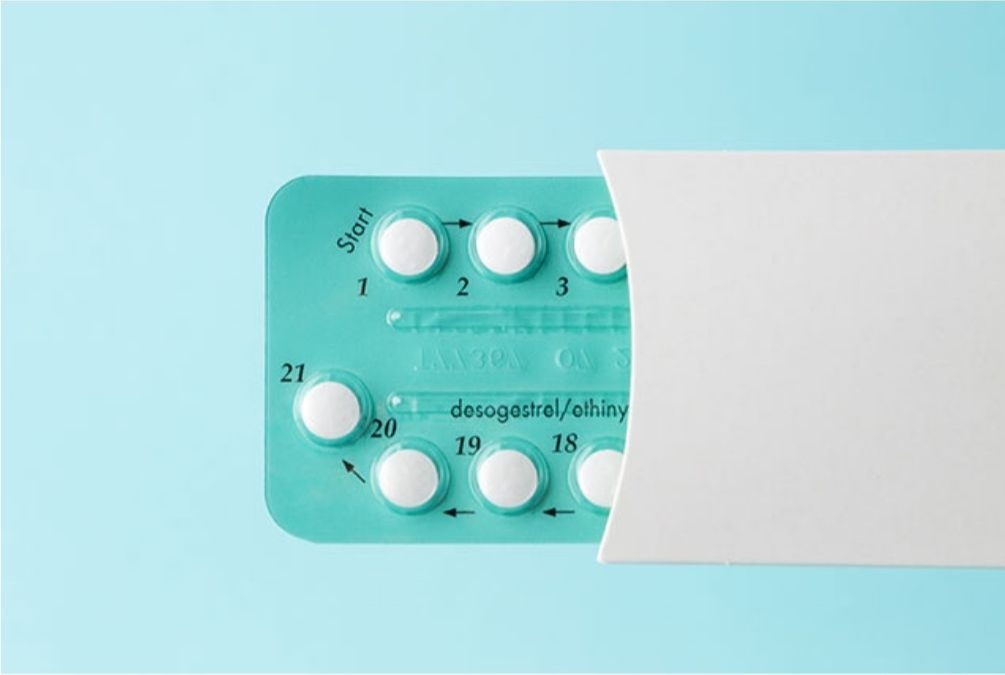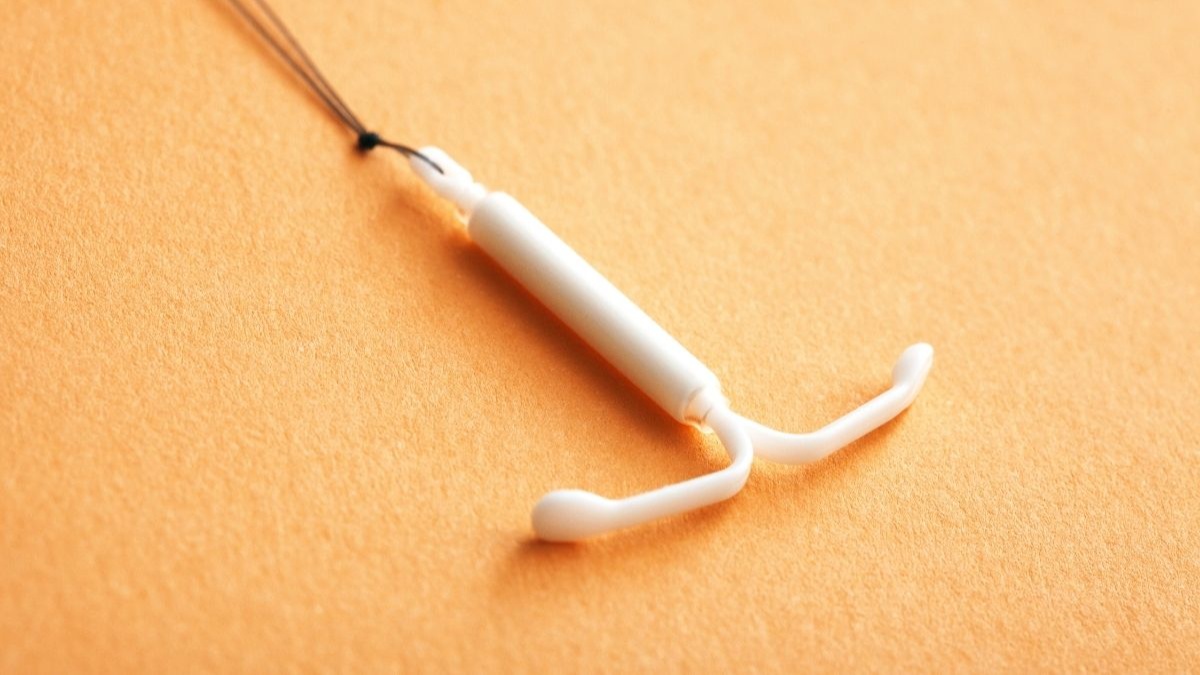What Are The Different Types Of Contraception?
Here's an interesting fact you might not know about: According to a recent study by the iPrice Group, results show that in the Philippines, there has been a rising interest in birth control. It seems like now more than ever, the decision to have children is a topic that's definitely up for discussion among Pinoys—and it will be for quite some time. Based on iPrice Group's report, the country's Google searches on contraceptives grew by 96 percent in 2021 and the interest has "been on a steady upward trajectory since then." In fact, "birth control pills" got the most searches in the first trimester of the year.

But aside from birth control pills, what other contraception types are actually accessible in the country? ICYDK, Plan B (aka the "morning-after" pill) is not one of them. So if you're looking for other methods—or you just simply want to educate yourself on the possible options—we asked OB-GYN Dr. Mae Syki-Young to break it down for us. Below, she discusses the different types of contraception available in the Philippines, their effectivity, and the factors to consider in choosing the *best* contraception type for you.
Contraception types available in the Philippines
Oral Contraceptive Pills (OCP)
Also known as birth control pills, oral contraceptive pills (OCP) are the most commonly used type of contraception. They're ingested daily and are composed of two hormones, estrogen and progestin. These prevent the woman's ovary from releasing an egg during ovulation. According to Dr. Syki-Young, "The effectivity is around 98 to 99 percent if taken correctly—meaning no missed pill, [and it's] taken at the same time daily."
Heads up though! She warned that if you take one to two more pills on the same day, this will most likely cause disruption in your regular period. "It can delay or advance the onset of your next period, cause irregular bleeding, or breakthrough bleeding." You can also expect to experience nausea, vomiting, and headaches.

Condom
A condom is worn over a man's penis to prevent the sperm in semen from reaching the eggs. It's usually made from latex (a type of rubber) or polyurethane (a type of plastic). "A condom is around 97 to 99 percent effective if used correctly. Ideally, it should be used even before penetration and removed ASAP after ejaculation," Dr. Mae Syki-Young explained. It's important to know that condoms can break, and once this happens, it's effectivity will obviously be lessened. (Read: The Condom Broke While We Were Having Sex—What Do I Do?)

Intrauterine Device (IUD)
The intrauterine device or IUD, is a small T-shaped object that is inserted into your uterus to prevent pregnancy. There are two types of IUD: copper and hormonal (another term for this kind is Mirena). "[Depending] on the device (copper or Mirena), it can stay from five to ten years," said Dr. Syki-Young. "It is around 98 to 99 percent effective [and] should be checked routinely if it is still in place." Fair warning: There are instances when an IUD can accidentally be removed during period or when you take out your tampon, so be careful!

Depo-Provera injection
Composed of the hormone medroxyprogesterone, a Depo-Provera injection is an injectable type of contraception. Unlike oral contraceptive pills which are supposed to be taken daily, this one is injected into your muscle every 12 weeks. These injectables are 96 to 98 percent effective. Dr. Mae Syki-Young adds, "It suppresses ovulation and most of the time, stops your menstrual period." (Read: I Get A Birth Control Shot Every Three Months—Here's What It's Like)

Birth control implant (Implanon)
Similar to the Depo-Provera injection, the Implanon is a plastic device that aims to suppress ovulation and stop the menstrual period. It's usually inserted under the skin of the inner arm where it slowly releases progesterone. The effectivity of this contraception type is at 99 percent, shared Dr. Syki-Young. (Read: I Got A Birth Control Implant On My Arm; Here's What It's Like)

Things to consider when choosing a contraception type
"In choosing the right contraceptive method, it is best to talk to your OB-GYN. There are pros and cons for each one," Dr. Syki-Young advised. Below, she mentions a few factors to keep in mind when figuring out which contraception type to go for.
Compliance
"The most important thing to consider is what will suit you better because compliance is very important. Most failed contraceptions [are] due to poor compliance," she revealed. So if for example, you decide to go with oral contraceptive pills, make sure you're ready to commit to taking your daily dose at the right time. (Set an alarm if you have to!)
Cost
Think about the options that are most cost-effective for you. Can your finances handle it? Dr. Syki-Young gave the IUD as an example. "Even if it might cost more from the start, it might end up cheaper because it is long term," she said.
Medical history
As a responsible adult, you gotta keep tabs on your health. Part of this is knowing your family's medical history. Ask your parents, siblings, and other relatives to find out if there are any chronic illnesses within the family that you should know about.
Side effects
When you discuss the possible contraception types with your OB-GYN, make sure that you fully understand the side effects that might occur with your preferred option. You have to know what you're getting yourself into! According to Dr. Syki-Young, "The possible side effects of each method should be discussed and understood so the compliance rate will be higher."
Dr. Mae Syki-Young is a consultant of Makati Medical Center and St. Luke's Medical Center, Bonifacio Global Center; Fellow of Philippine Obstetrics and Gynecology Society (POGS); Member of Philippine Society of Gynecologic Endoscopy (PSGE); Member of Aesthetic Gynecology Society of the Philippines (AGSPI). You can also follow her on Instagram and Facebook.
***
Cosmopolitan Philippines is now on Quento! Click here to download the app and enjoy more articles and videos from Cosmo and your favorite websites!
Follow Lou on Instagram.
[ArticleReco:{"articles":["76353","65501","60690","63561"], "widget":"More from cosmo"}]
Source: Cosmo PH

Post a Comment
0 Comments